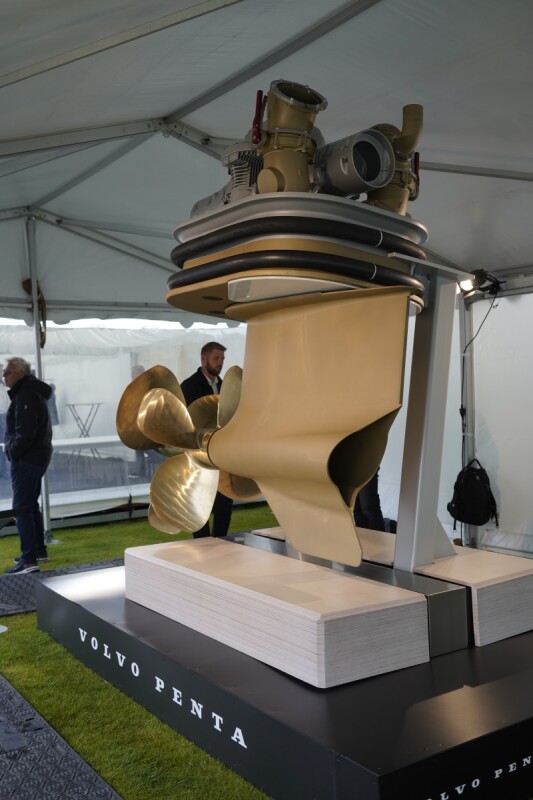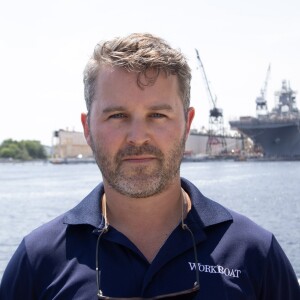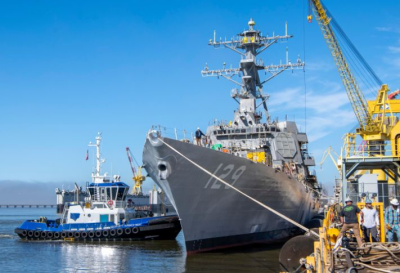At the time of writing this, I’m sitting at Volvo Penta’s (VP) test center in Krossholmen, Sweden. After extensive sessions detailing the company’s inboard propulsion system (IPS), the attending media group got behind the wheel (and joystick) of two smaller monohulls ranging in size from 34’-37’, where we tested the company’s dynamic positioning system (DPS) and dock assist features, as well as their D4-DPI electric, hybrid and diesel modes.
Though the IPS system is nothing new, the company’s largest model, the IPS 40, is. Volvo Penta states their IPS 40 can be suited for vessels up to 180’, coming in twin, triple, or quad configurations. The media group witnessed the IPS 40 in action on one of VP’s testing vessels, a 122’x33’x6.5’ catamaran ferry, repowered with quad IPS 40s. Volvo has been running a comparative study to the vessel’s previous Controlled Pitch Propellor (CPP) system from 2018, a configuration VP claims is a quality system to measure against.

Shared results from the study showed the IPS repowered ferry achieved a decreased turning radius by a minimum of 20%, a reduced fuel consumption at all speeds (most evident in ‘eco mode’ under 14 knots), and a halved time to reach 30 knots from a standstill, compared to the original CPP system.
The DPS and dock assist mode are also available in the IPS 40, leading the group to believe each of us could run a 122’ ferry in almost any sea state, and dock it on a dime. Volvo executives noted the passenger vessel market is one they plan to target in the immediate future.
The day concluded with the first commercial application of an IPS 40 to hit the water – a christening ceremony was conducted for Northern Offshore Services’ new I-Class crew transfer vessel (CTV). The 111.5’x36.5’x6’ catamaran has four Volvo D13 engines connected to twin IPS 40s, including two Volvo D4 auxiliary engines.





